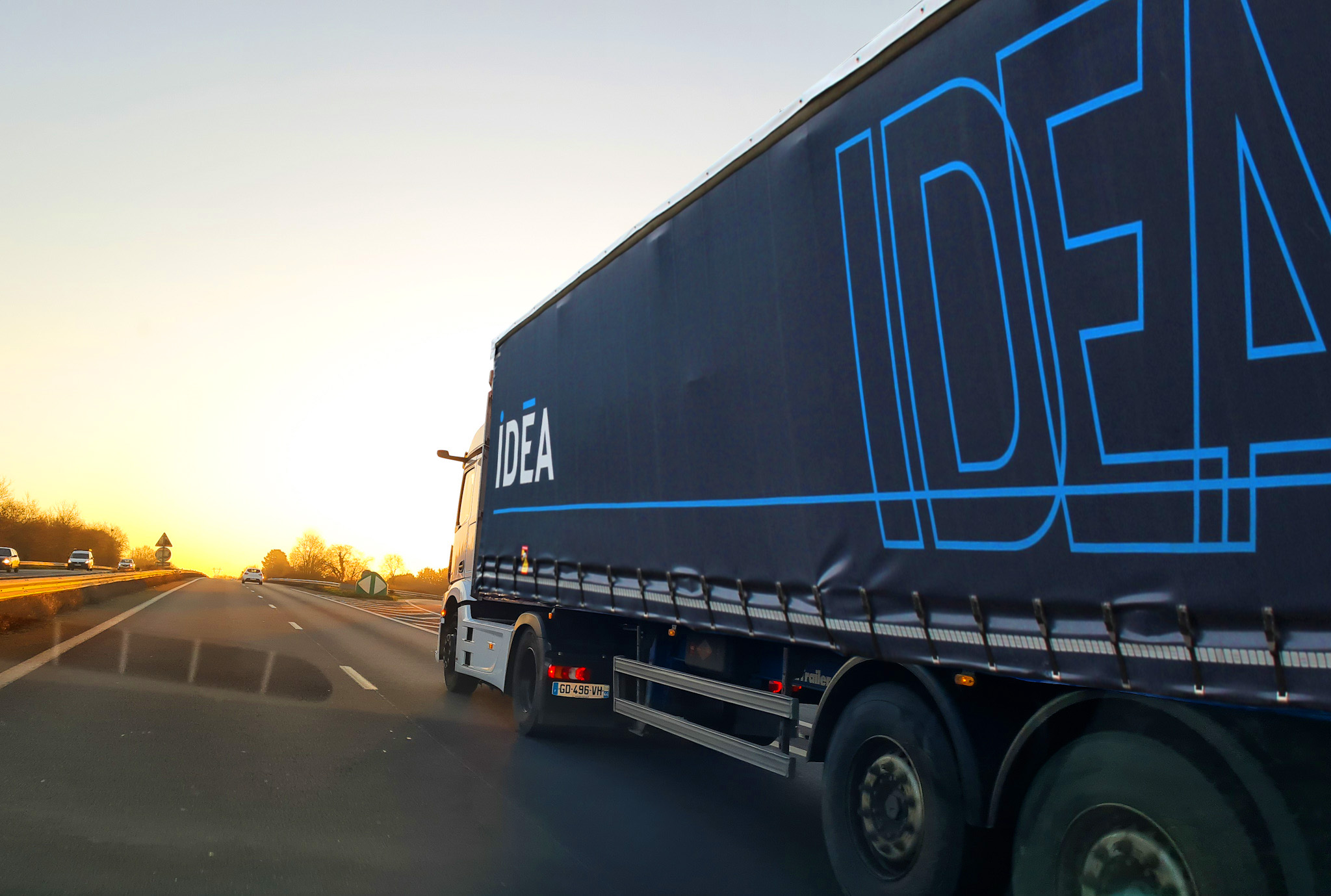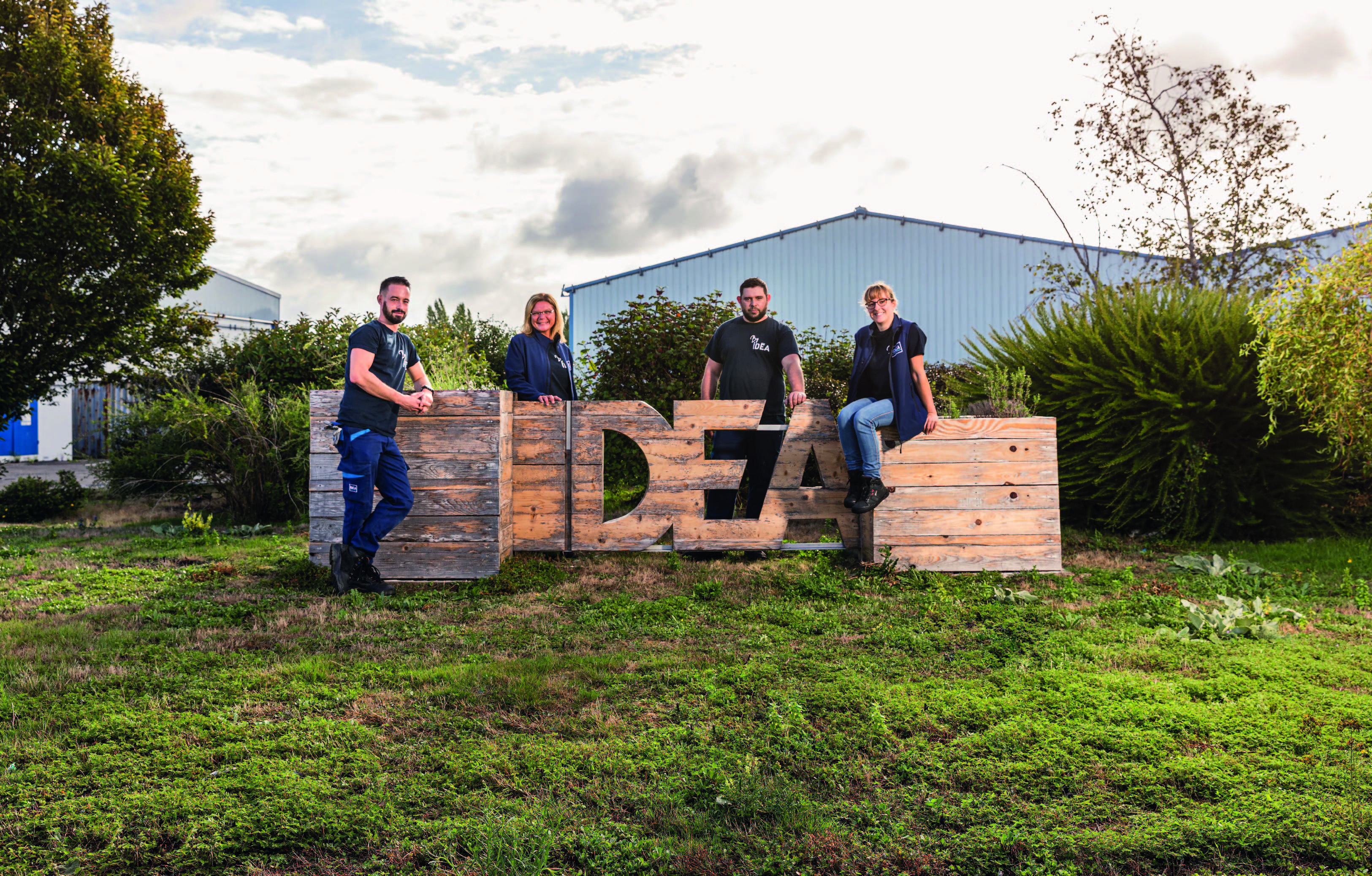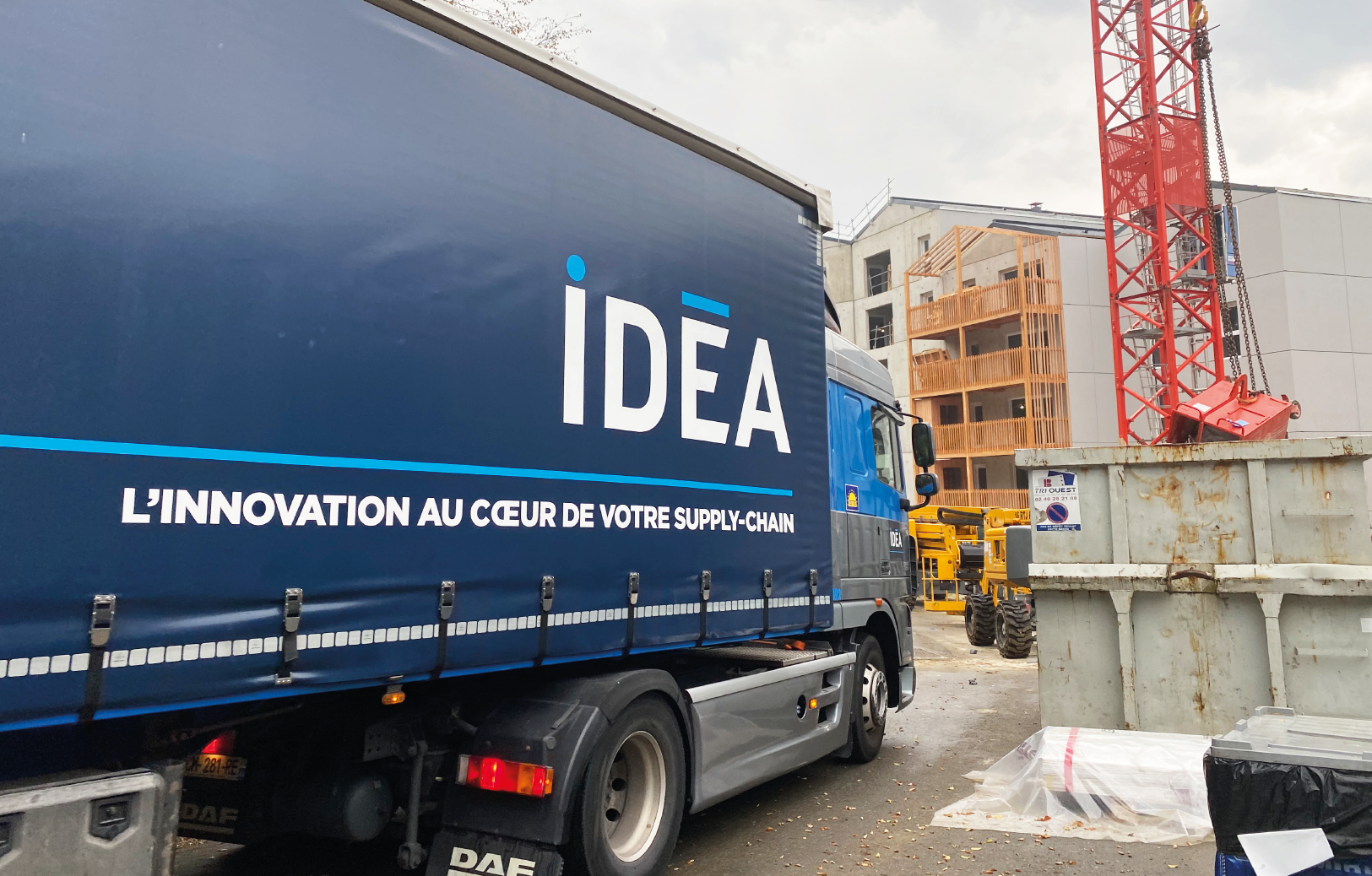IDEA is accelerating the decarbonisation of its transport fleet

In addition to its nearly 25 trucks already running on biogas, the IDEA Group is accelerating its decarbonisation efforts by adopting PUR-XTL, a new biofuel suitable for long-distance routes, to equip its diesel tractors starting from 2024. This will enable the IDEA Group to achieve 40% reduction in its carbon trajectectory by 2026.
Beginning in early 2024, IDEA will supply its thermal tractors with PUR-XTL for customers choosing this option. PUR-XTL is a paraffinic synthetic biodiesel made from waste (such as residual oils or fats) and is compatible with all diesel engines. This 100% renewable alternative fuel improves carbon footprint, reducing CO2 emissions by up to 90% compared to conventional diesel, in line with European regulations.
For the logistician, this investment is fully in line with its approach to decarbonising its transport fleet and, is part of broader corporate social responsability and environmental strategy (CSR). This strategy aims to reduce its carbon footprint by 25 % by 2025 and achieve carbon neutrality by 2040.
Phased decarbonisation year by year
- 2021 : carbon footprint -2%
- 2022 : carbon footprin -16%
- 2023 : carbon footprin -22%
- 2024 : carbon footprin forecast -30%
- 2025 : carbon footprin forecast -35%
- By 2026 :the IDEA fleet will have reduced its carbon footprint by 40%
A fleet combining biogas and PUR-XTL : a responsible choice.
Road transport is one of the largest CO2 emitters in the logistics chain. Therefore, IDEA has chosen to decarbonise its fleet by combining biogas-powered tractors for short trips and PUR-XTL-powered tractors for long distance journeys. This is a responsible choice that balances logistics efficiency and environmental performance for year-on-year decarbonised mobility.
Begenning in early 2024, 500,000 litres of PUR-XTL will replace diesel in the IDEA fleet for long-distance routes. This choice of PUR-XTL is based on a mutual commitment between IDEA and its customers, which will together define the volume and duration required for their logistics transports services. IDEA will source this new alternative fuel from its supplier, Altens, and store it at its operating sites in Loire-Atlantique. Altens provides access to low-carbon fuels by distributing 100% renewable solutions. Through PUR-XTL, Altens claims to reduce carbon footprint by up to 90% of greenhouse gas emissions, 65% of fine particles and 37% of nitrogen oxides.
« Altens supports its transport customers in their decarbonisation journey by offering renewable energy alternative and traceability tools for the carbon benefits of our biofuels. Therefore, in our discussions with IDEA, our initial task was to educate about our offerings and provide them with all the information needed to choose PUR-XTL" explains Côme De Tarnay, Product Manager, Altens. « We are delighted with this collaboration, xhich has been smooth and natural, with a strong embrace of our offerings and alignment of values towars decarbonised energy.»
In addition to accelerating the adoption of PUR-XTL, IDEA will continue its deplyment of biogas-powered tractors, which began in 2022 and currently accounts for nearly 16% of its fleet.
« Today, taking action climate is no longer an option. Heavy goods vehicles account for 24% of greenhouse gas emissions in the French road transport sector. IDEA's strategy is to make low carbon solutions attractive to our customers have the opportunity to prioritise carbon impact » says Frédy Courilleau, Director of the Transport BU at IDEA. « By combining this new biofuel with biogas, we offer our customers a comprehensive decarbonisation solution for both short and long-distance routes.»
As part of its Corporate Social Responsability (CSR) approach, IDEA is commited to energy transition, particulary by seeking to reduce the carbon footprint of its logistics services. The group aims to involve its customers in this more sustainable direction, enabling them to choose logistics solutions that are less energy-intensive but equally economically effective.

